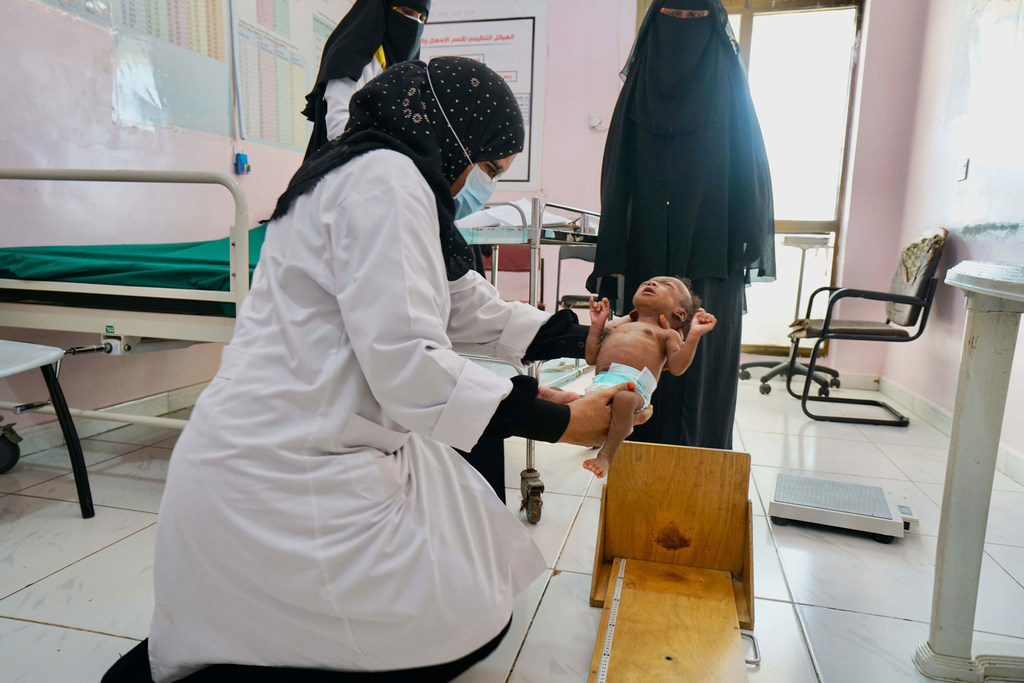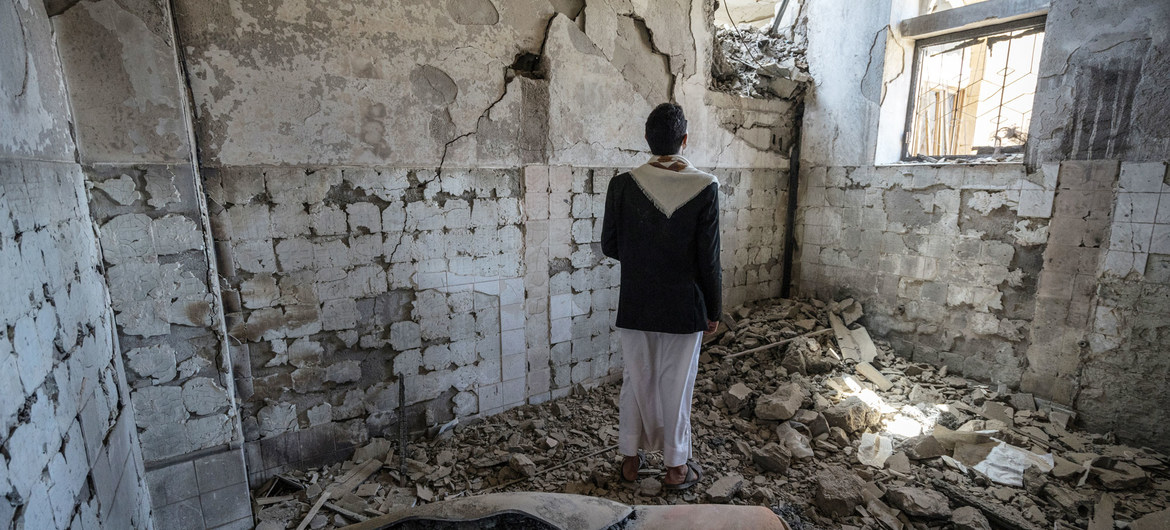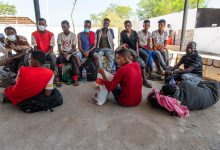Five million Yemenis ‘one step away from famine’– UN relief coordinator tells Security Council
 Malnutrition rates in Yemen are at “record highs” as the country is “speeding towards the worst famine the world has seen in decades”, the UN Emergency Relief Coordinator told the Security Council on Thursday, citing newly released data.
Malnutrition rates in Yemen are at “record highs” as the country is “speeding towards the worst famine the world has seen in decades”, the UN Emergency Relief Coordinator told the Security Council on Thursday, citing newly released data.
“We are running out of time”, said Mark Lowcock, who also heads UN humanitarian affairs, noting that across Yemen, more than 16 million people are going hungry, five million of whom are “just one step away from famine”.
He painted a picture of children starving to death – with distended bellies, emaciated limbs and blank stares, pointing to some 400,000 under-age-five girls and boys who are so severely malnourished that they are in “their last weeks and months”.
Important opportunity
Over fears of the devastating impact it could have on Yemen’s food supply, last week the United States reversed its designation of Ansar Allah as a foreign terrorist organization.
“US officials have made clear, and we agree, that the concerns around this issue are strictly humanitarian”, said Mr. Lowcock, adding that the US also reaffirmed its intention to prioritize diplomacy in ending the war and dealing with the humanitarian crisis.
He warned that if Yemen “tips into a massive famine”, an opportunity towards lasting peace would be lost.
Preventing famine
To prevent a further catastrophe, the Humanitarian Coordinator called for urgent action on five points, beginning with the protection of civilians.
As front lines reportedly move closer to civilian areas – with attacks sparking a dangerous escalation – Mr. Lowcock worried that “hundreds of thousands of people” may again be sent “running for their lives at a time when everyone should be doing everything possible to stop famine”.
On his second point, humanitarian access, he reminded that international humanitarian law required “rapid, unimpeded humanitarian access” and emphasized that despite many challenges, aid operations are still delivering.
Turning to funding, his third point, the Humanitarian chief said that in 2020, aid operation received half of what it had the previous year, which resulted in millions of people in need.
“On 1 March, the Secretary-General will convene a virtual high-level pledging event for the Yemen crisis”, he said, calling for everyone to “show they are serious about seizing the opportunity for peace”.
On the fourth issue, supporting the economy, he advised, among other things, to bring the exchange rate down “to more sustainable levels”.
And on his final point, making progress towards peace, Mr. Lowcock stressed that “first, the violence must stop” and called for a mediated nationwide ceasefire and the resumption of the political process.
“The only way to end the crisis in Yemen is to end the war”, concluded the UN Humanitarian Coordinator.
Situation spiraling downward
While fresh violence and a worsening humanitarian situation continues to unfold, Special Envoy Martin Griffiths said the situation had taken “a sharp escalatory turn” with Ansar Allah’s most recent offensive on Marib Governorate.
Reiterating calls that the attack on Marib must stop, because “it puts millions of civilians at risk…especially with the fighting reaching camps for internally displaced persons”, he upheld that forceful quests for territorial gain threaten peace prospects as looming famine, fuel shortages and other grave challenges prevail.
Political moves
Although the situation on the ground is deteriorating, Mr. Griffiths welcomed the US’ renewed focus on the conflict, saying the move offers a new opportunity to “reopen space for a negotiated solution” and that revived international momentum is “indispensable” to finding a peaceful resolution.
He highlighted elements for a mutually acceptable end to the war and a path towards peace that included political participation, accountable governance, equal citizenship and economic justice.
“The only way to realize these aspirations…is through a genuinely inclusive, Yemeni-led political process under United Nations auspices and supported by the international community”, the UN envoy spelled out.
Back to the negotiating table
Emphasizing what is at stake, Mr. Griffiths said that the military situation is “extremely tense” and underscored that civilians are bearing the brunt of “shocking violations of international humanitarian law”, worrying spikes of violence and continuing hostilities in Hudaydah and Taïz Governorates, as well as cross-border attacks.
However, recalling that the parties had successfully negotiated a large-scale release of prisoners and detainees in 2020, he maintained that “the negotiating table can produce win-win results”.
The UN official informed the Council that negotiations for more releases were underway.
He also called for the “immediate and unconditional release of all sick, wounded, elderly and children detainees, as well as all arbitrarily detained civilians, including women and journalists”.
“As a mediator, I seek common grounds for agreements”, he said. “But there is nothing anybody can do to force the warring parties into peace unless they choose to put down the guns and talk to each other. The responsibility to end the war, first and foremost, lies with the parties to the conflict. I hope they will not miss this chance.”

UN OCHA/Giles ClarkeA local man stands next to a missile casing in a former government building in Saada City, Yemen. (file)



